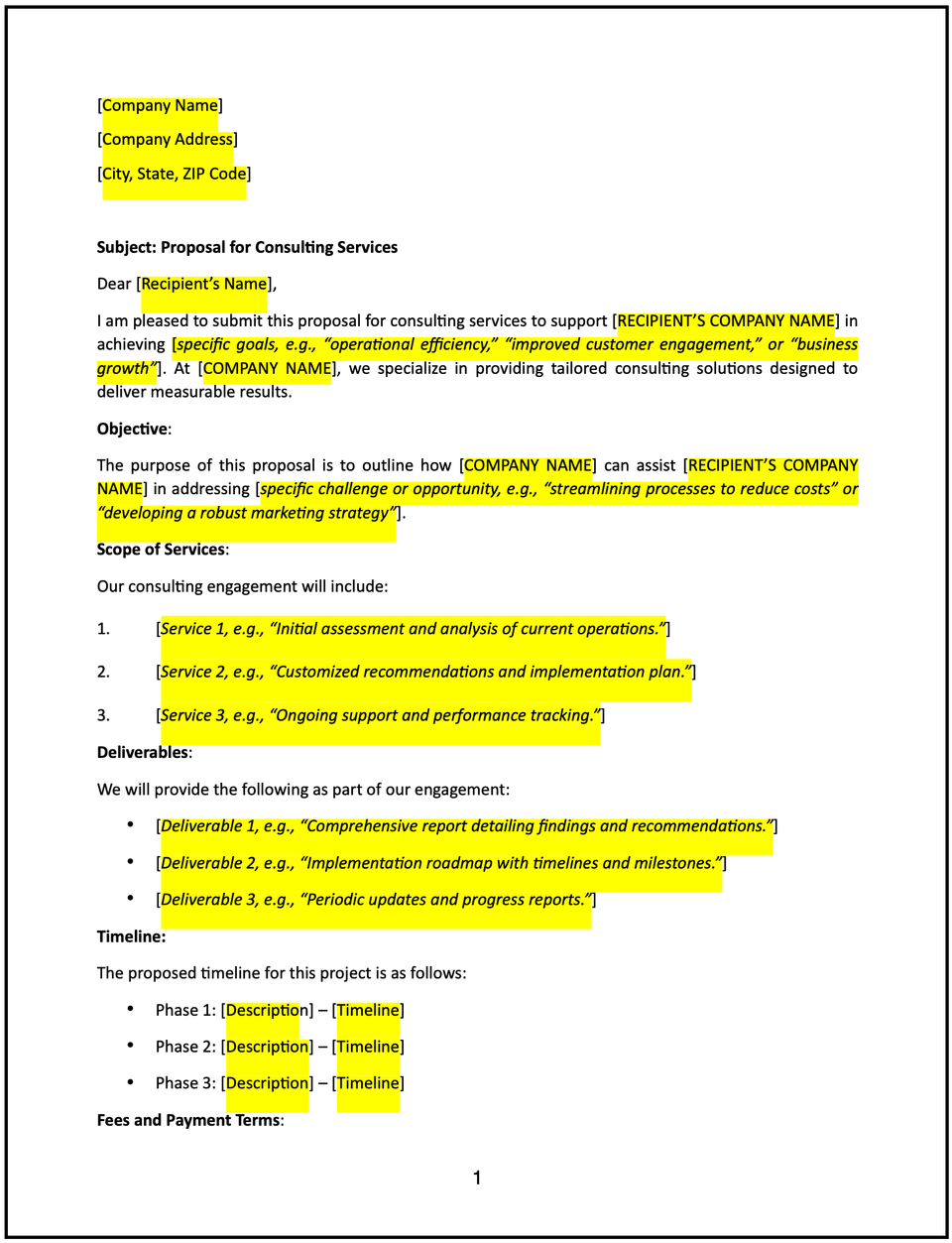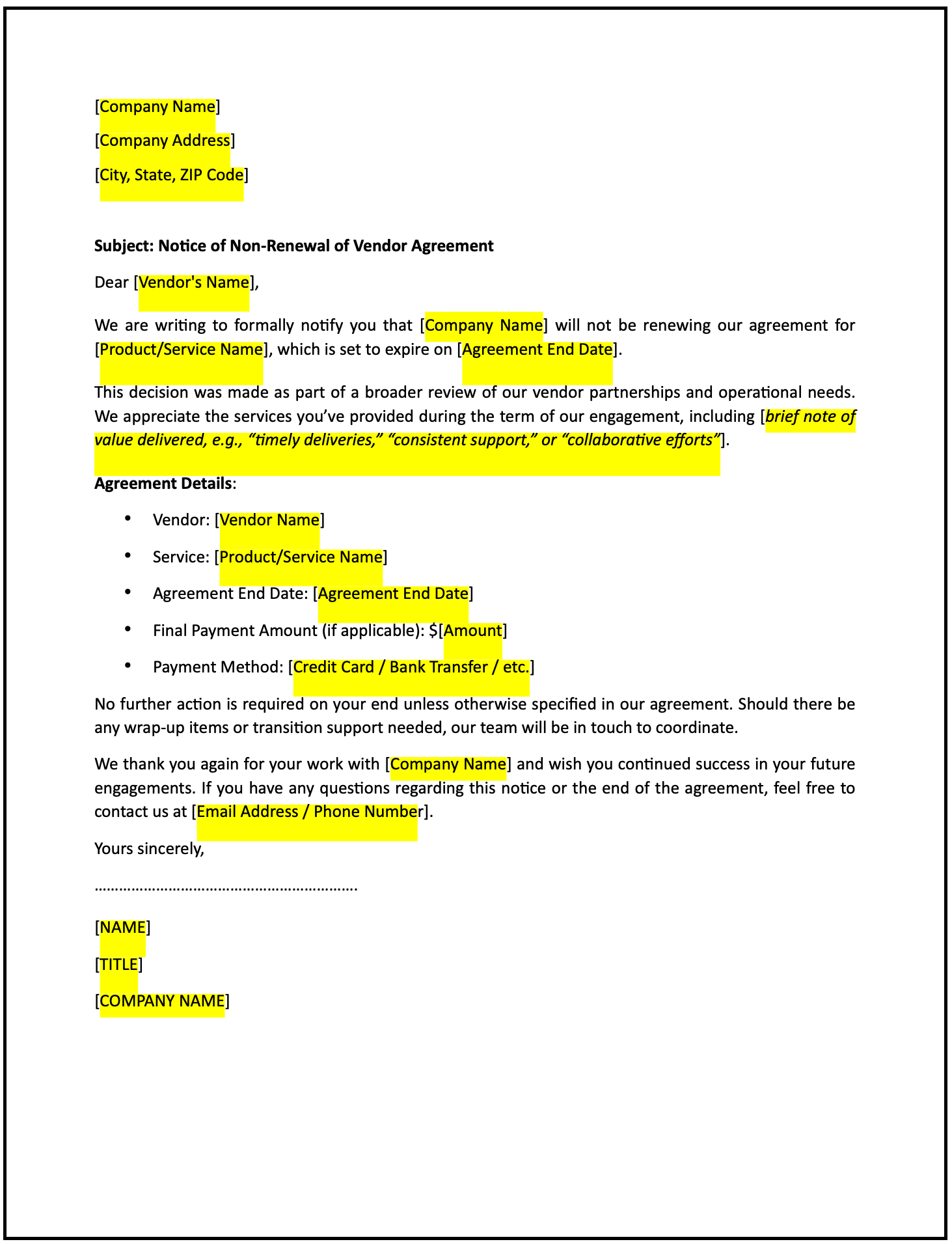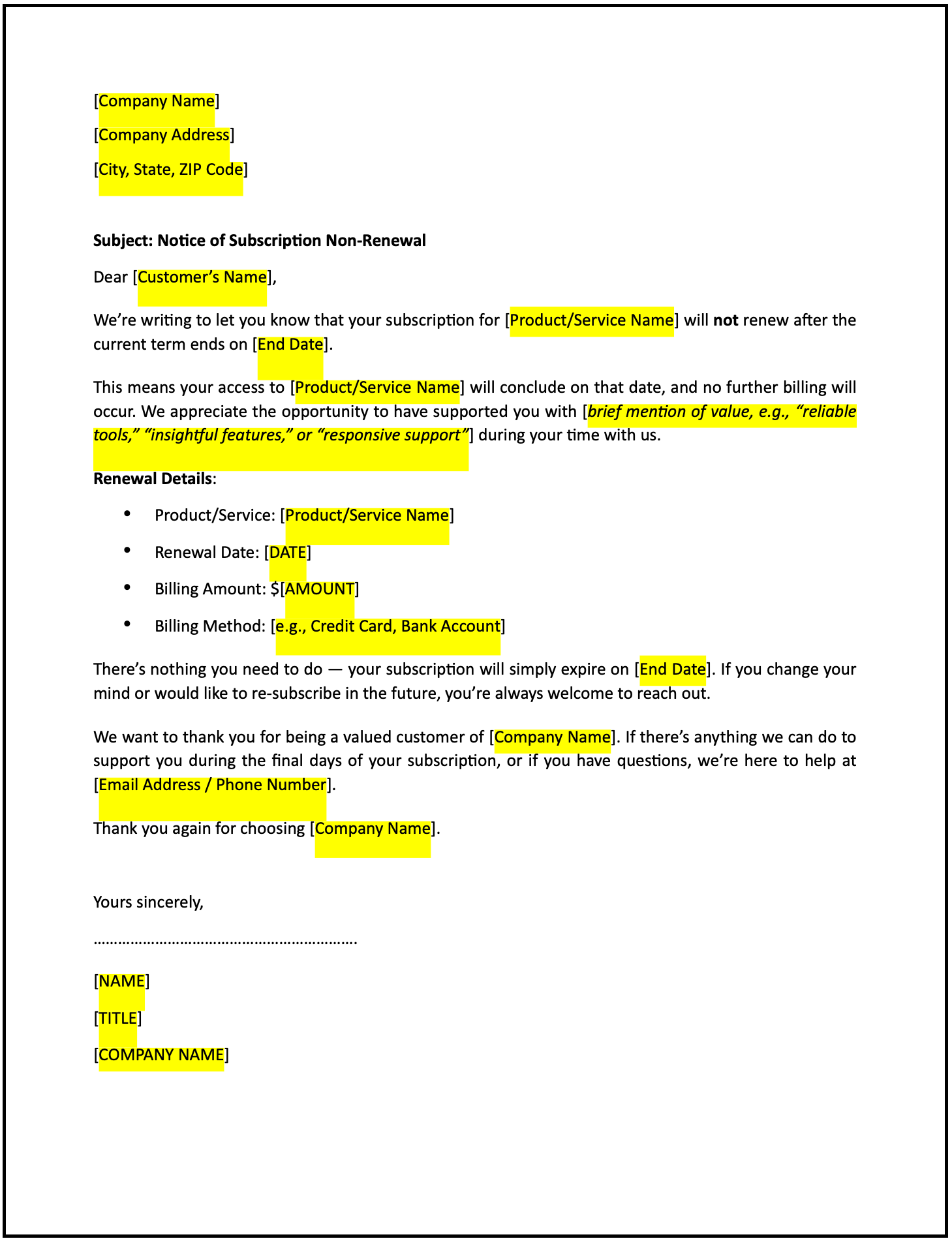Letter of proposal for consulting services: Free template

Letter of proposal for consulting services
A letter of proposal for consulting services is a formal communication used to outline how consulting expertise can address a client’s specific needs or challenges. This letter demonstrates an understanding of the client’s situation, highlights relevant services, and provides a clear path for collaboration.
How to use this letter of proposal for consulting services
- Open with an introduction: Address the recipient respectfully and introduce yourself or your organization, including your area of expertise.
- State the purpose: Clearly outline the intent to propose consulting services that meet the client’s needs or objectives.
- Demonstrate understanding: Reference the client’s current challenges, goals, or industry concerns to show you’ve tailored the proposal.
- Outline the proposed services: Provide an overview of the services you offer, detailing how they align with the client’s objectives.
- Highlight the benefits: Emphasize the specific value your services bring, such as increased efficiency, cost savings, or improved strategy.
- Mention your credentials: Include relevant experience, case studies, or qualifications to establish credibility.
- Suggest next steps: Propose a follow-up discussion, meeting, or detailed presentation to explore the proposal further.
- Maintain a professional tone: Ensure the letter is clear, respectful, and focused on fostering collaboration.
- Provide contact information: Include details for the recipient to ask questions or schedule further discussions.
Benefits of using a letter of proposal for consulting services
This letter ensures a structured and professional way to present your consulting expertise while fostering trust and engagement. Here’s how it helps:
- Promotes alignment: Tailoring the proposal to the client’s needs demonstrates attentiveness and relevance.
- Builds credibility: Clearly communicating expertise and experience strengthens trust in your services.
- Reflects professionalism: A polished letter shows respect and a commitment to delivering value.
- Encourages engagement: Highlighting mutual benefits invites collaboration and further discussions.
- Supports decision-making: A clear and concise proposal helps clients evaluate and act on your offer effectively.
Tips for writing an effective letter of proposal for consulting services
- Be specific: Clearly outline the proposed services and how they address the client’s unique challenges.
- Use professional language: Maintain a respectful and persuasive tone to build trust and credibility.
- Provide context: Reference the client’s goals, challenges, or industry to demonstrate understanding and relevance.
- Highlight mutual benefits: Emphasize the tangible results and outcomes your consulting services can deliver.
- Include actionable steps: Propose follow-ups, such as meetings or presentations, to discuss the proposal further.
- Keep it concise: Focus on the essential points while maintaining a professional and engaging tone.
Frequently asked questions (FAQs)
Q: What details should I include in this letter?
A: Include an introduction, your understanding of the client’s needs, proposed services, benefits, credentials, and next steps.
Q: Should I personalize the letter?
A: Yes, addressing the recipient by name and referencing specific challenges or goals ensures the letter feels tailored and relevant.
Q: Who typically sends this letter?
A: Consulting firms, independent consultants, or business development representatives typically send this letter.
Q: How formal should this letter be?
A: The tone should be professional, respectful, and solution-oriented to foster trust and collaboration.
Q: When should this letter be sent?
A: Send the letter after identifying the client’s needs and tailoring the proposal to address their objectives effectively.
Q: Can this letter include additional documents?
A: Yes, attaching case studies, service descriptions, or success stories can enhance the proposal’s impact.
Q: Is acknowledgment from the recipient required?
A: While not mandatory, requesting acknowledgment or feedback encourages further engagement and discussion.
This article contains general legal information and does not contain legal advice. Cobrief is not a law firm or a substitute for an attorney or law firm. The law is complex and changes often. For legal advice, please ask a lawyer.


